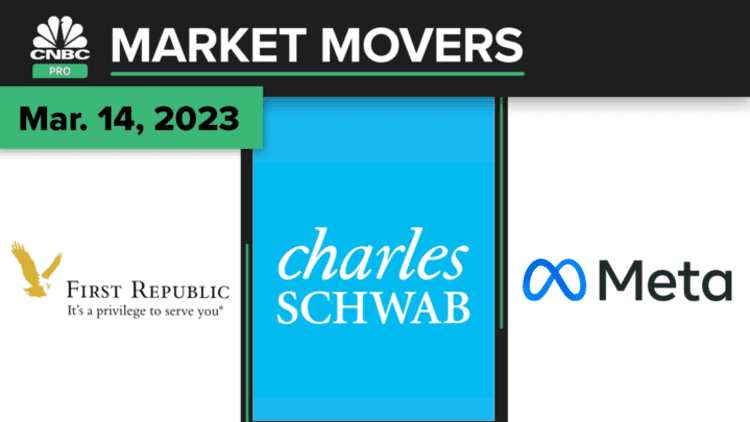
U.S. stocks rose Tuesday as investors bet the risk of contagion following the closures of Silicon Valley Bank and Signature Bank has been contained.
The Dow Jones Industrial Average ended up 336.26 points, or 1.06%, at 32,155.40, snapping a five-day losing streak. The S&P 500 added 1.65% to close at 3,919.29. The Nasdaq Composite climbed 2.14% to end at 11,428.15.
Investors' enthusiasm for buying bank stocks lost some steam in the afternoon. But many still notched gains, marking a turn from two sessions of deep selloffs as investors became increasingly confident that those names wouldn't suffer the same fate as Silicon Valley and Signature. Regulators said Sunday that they created a plan to backstop all depositors in the two banks.
The SPDR S&P Regional Banking ETF (KRE) closed the session up 2%, regaining some ground following a 12% decline the day prior. Shares of First Republic Bank popped nearly 27% after closing down nearly 62% on Monday. KeyCorp shares added almost 7% in a relief bounce following a 27% slide.

Traders are looking ahead to what's next for the banking sector in light of the recent turmoil.
The backstop announcement "changed the sentiment, or shifted the tide, to some extent," said Charlie Ripley, vice president of portfolio management at Allianz Investment Management. "It starts with the immediate knee-jerk reaction, and then it takes some time to kind to kind of dig into the details and understand the real risks and understand where the true exposures are."
The rally extended beyond financials, with all of the 11 S&P 500 sectors rising in Tuesday's session. Stocks gave up some gains in the afternoon as investors responded to news of a Russian fighter jet downing a U.S. drone over the Black Sea.
Traders also focused on the latest U.S. inflation data.
The consumer price index rose 0.4% in February from January, matching the consensus estimate of economists polled by Dow Jones. The annualized increase of 6% was also in line with economists' expectations. So-called "core" CPI, which removed volatile food and energy prices, grew from the prior month slightly more than economists expected at 0.5%, while the year-over-year increase of 5.5% came in line with what they anticipated.
"It's a sigh-of-relief rally, we'll call it, given the lack of any major surprises in CPI and then just the lack of any surprises overnight in the banking space," said Adam Turnquist, chief technical strategist at LPL Financial. "The market's welcoming that."
Correction: An earlier version of this story misstated the move and closing level in the S&P 500.

